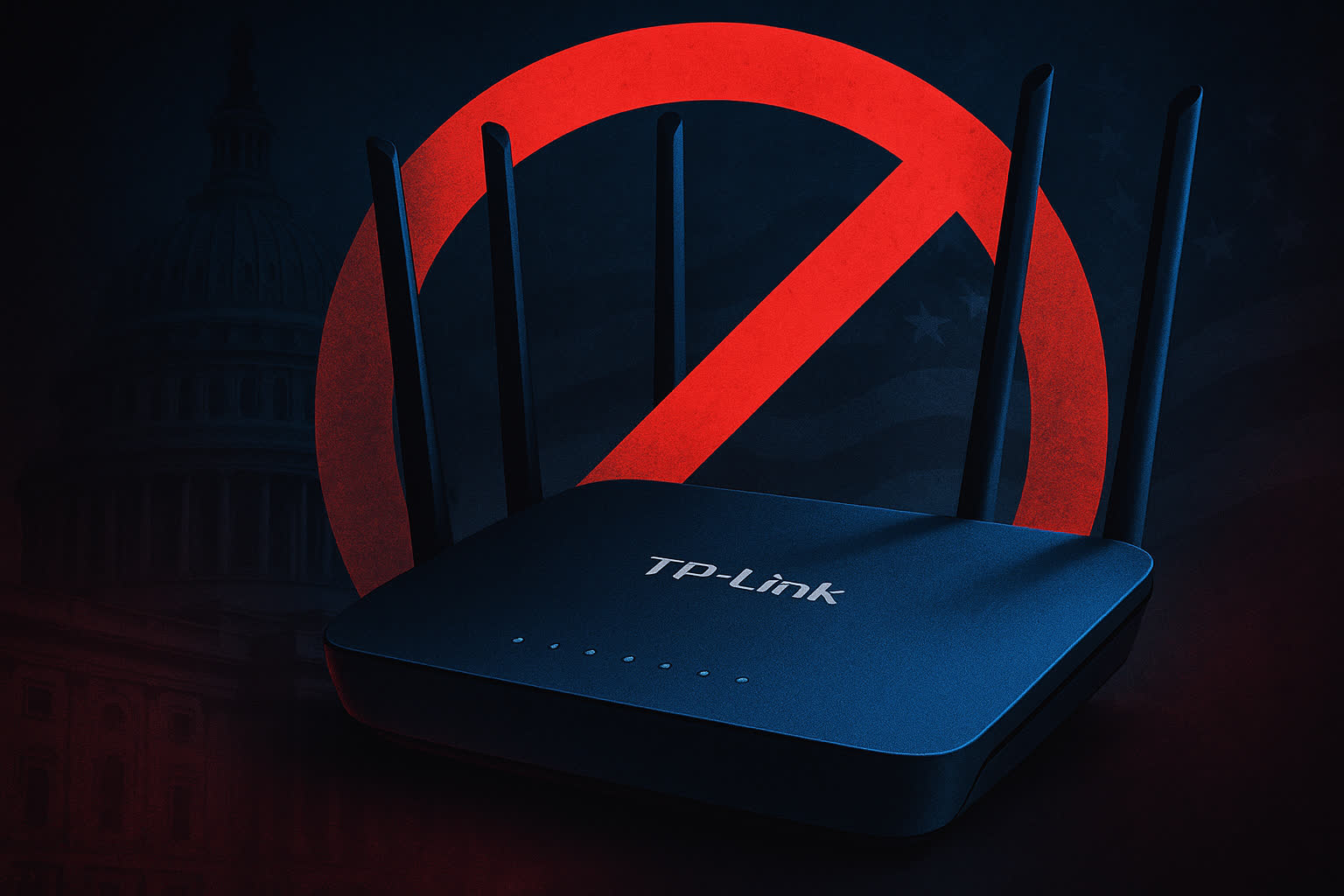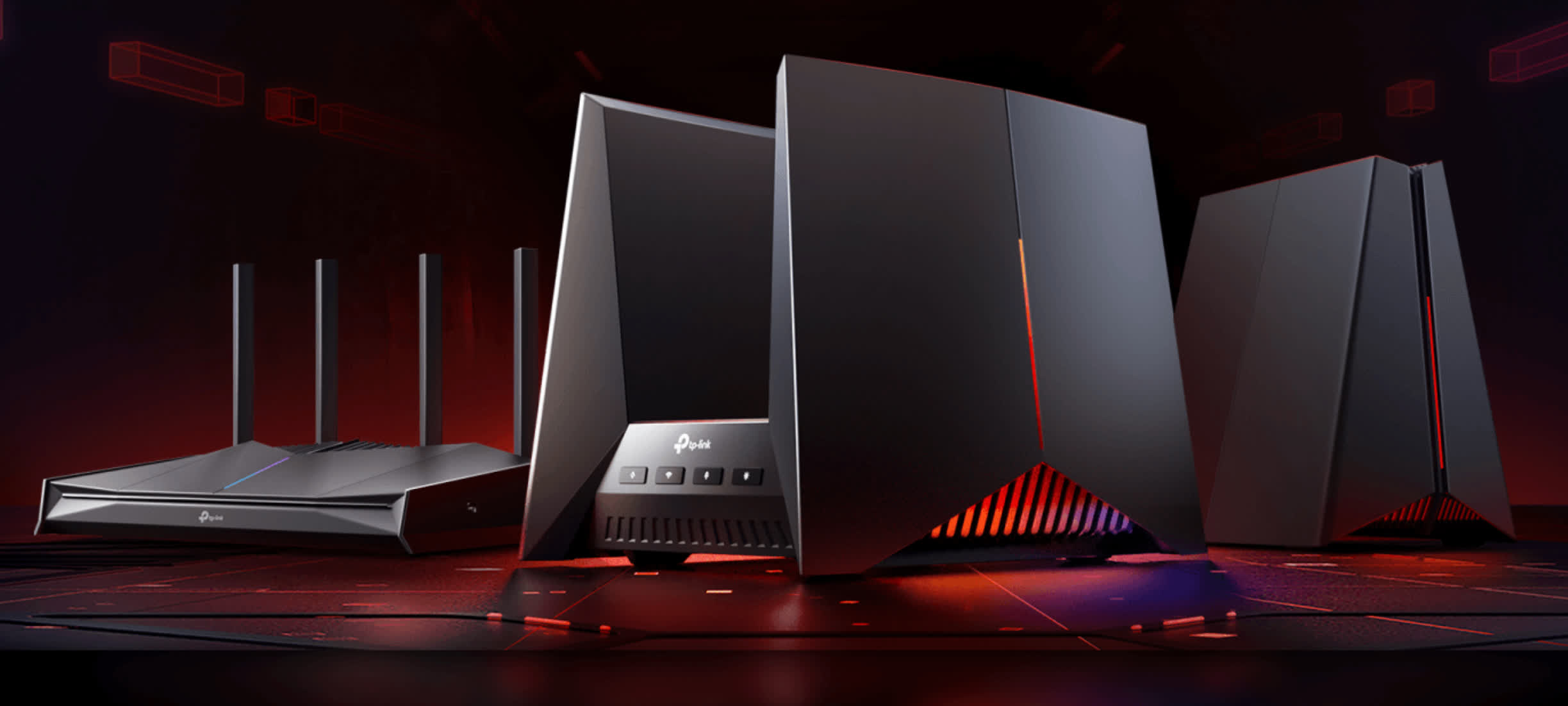What just happened? TP-Link, the most popular router brand in the US, could be banned in the country. The ongoing saga over the firm's alleged links to China and anti-competitive behavior has led Republican lawmakers to urge the Commerce Department to ban sales of the company's products.
The seventeen senators and representatives wrote a letter to Commerce Secretary Howard Lutnick this week to support the ongoing investigations into TP-Link. The company is being investigated by the Commerce, Defense, and Justice Departments over whether its China ties pose a security threat and whether the firm engaged in predatory pricing to undercut competitors and dominate the US market.
The group essentially claims that TP-Link's cheap prices have helped it become the number one router brand in the US, thereby allowing the Chinese government to launch cyberattacks and surveillance programs against the United States using the devices.
The letter also urges Lutnick to prohibit further sales of TP-Link networking products in the United States.
The group goes on to accuse TP-Link of having a close association with the Chinese Communist Party, using predatory pricing to eliminate "trusted" US alternatives, and embedding foreign surveillance and destructive capabilities into US networks, all of which make it a "clear and present danger."
The letter states that Chinese state actors have exploited TP-Link small and home office (SOHO) networking devices to wage cyberwarfare against the United States. It's also claimed that TP-Link is the only router company that refuses to engage in industry efforts to remediate Chinese state-sponsored bots.
"Each day we fail to act, the CCP wins while American competitors suffer, and American security remains at risk," wrote the lawmakers.
In a statement responding to the letter, TP-Link told PCMag, "The allegations are categorically false, and we look forward to setting the record straight about our company."
"To be clear, TP-Link is not a state-sponsored company, has no 'deep ties' to, and is completely independent from, the Chinese Communist Party."
Nine of sixteen best-selling routers on Amazon are TP-Link brands, including the top three models. It's estimated that 60-65% of homes and small businesses in the US use the routers, whose cheap prices help make them so popular.
In October 2024, Microsoft exposed "CovertNetwork-1658," a Chinese-run botnet siphoning credentials from Azure since August 2023 via password-spray attacks. The network marshalled 16,000 hijacked SOHO routers, cameras and other IoT nodes – chiefly TP-Link models.
The company's routers have a history of vulnerabilities: a CVSS-10 flaw hit the Archer C5400X in May 2024, and 2023 reports tied Chinese state actors to custom malware installed on TP-Link routers. The latter incident arrived soon after the US government said Mirai Botnet operators were using TP-Link routers for DDoS attacks.
TP-Link, founded in 1996 by brothers Zhao Jianjun and Zhao Jiaxing, established its US arm in 2008 to handle marketing and support in North America, though ownership and operations remained tied to its Shenzhen-based parent. In 2024, TP-Link USA merged with the company's non-Chinese operations to form TP-Link Systems Inc., headquartered in Irvine, California – a move intended to create an "organizational separation," with distinct ownership, governance, R&D, and supply chains on each side.
Lawmakers say TP-Link's rock-bottom prices fuel Chinese cyberattacks, back US sales ban


